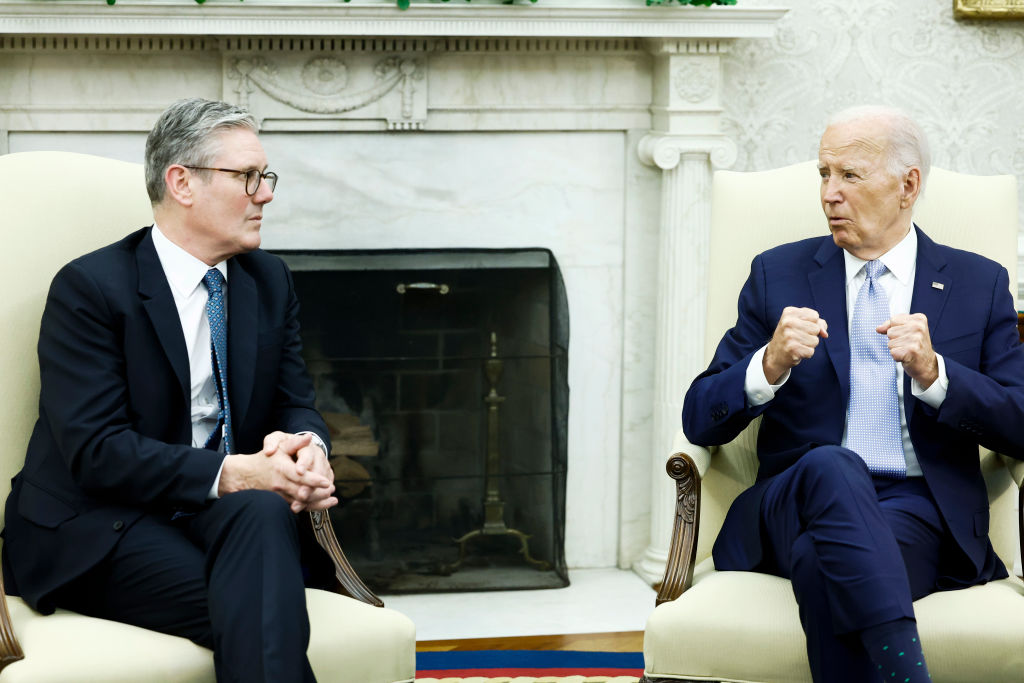When it comes to allowing Ukraine to strike deep into Russia with US and British missiles, sense appears — for the moment at least — to have prevailed in Washington, and London has fallen into line. Though senior UK politicians have encouraged Prime Minister Keir Starmer to go against the American line and permit the use of these missiles, we should all hope that his current restraint continues. For while such strikes would help to slow down Russian advances, they would not lead to Ukrainian “victory”, and they would be likely to cause some form of Russian retaliation against Britain — with no certainty that the US would then come to Britain’s aid. In fact, there is no evidence from their statements or actions that the interests of Britain and British citizens have any place at all in the thinking of UK politicians who urge escalation in Ukraine.
Until now, Vladimir Putin has mostly limited himself to bluster in response to Western military aid, training and intelligence for Ukraine. On this issue, however, the Russian President’s latest statements mean that it would be extremely difficult for him not to react. For he has long been subjected to intense — though mostly private — criticism from Kremlin hardliners, who have argued, not without reason, that he has so far mobilised only a fraction of Russia’s available manpower and resources for the war in Ukraine. More than that, he is judged to have allowed the West to repeatedly violate Moscow’s “red lines”.
Russia is not remotely likely to respond with a nuclear strike on Ukraine, let alone the West — though a nuclear test is a possibility. Moves towards the use of even tactical nuclear weapons would be Russia’s very last resort. Instead, the danger is that strikes into Russia by Western missiles would lead to more limited retaliation, in turn provoking a cycle of mutual escalation ending in full-scale war.
Should strikes into Russia by Storm Shadows and ATACMs take place, Moscow has a range of possible responses. These would most likely be directed in the first instance against Britain, not America, so as to send a strong signal without necessarily leading to US retaliation. One would be to shoot down British military aircraft operating close to Russian airspace in the Baltic, the Black Sea or the Arctic. Even more dangerously, Russia might seek to destroy British intelligence satellites helping Ukraine with targeting.
Perhaps more likely as an initial step would be a radical escalation of sabotage operations in Europe, justified in Moscow’s view by the destruction of Nord Stream 2. These could, for example, include attacks on British energy infrastructure in the North Sea. Some sabotage has already occurred, but so far it has been minor, deniable, and intended to deter rather than do serious damage. Nobody has yet been killed, and no significant piece of infrastructure has been destroyed. That would change if Ukraine strikes deep into Russia with Western missiles.
Given Russia’s growing closeness to Iran, the Kremlin could provide Hezbollah and the Houthis with both missiles and the satellite technology to launch much more effective strikes on Israel and Western shipping. Putin hinted at this in June, when he said that “if someone thinks it is possible to supply such weapons to a war zone in order to strike at our territory, then why do we not have the right to supply our weapons of the same class to those regions of the world where there will be strikes on sensitive facilities of those countries that are doing this to Russia?”
Whatever happens, the present war will end in some kind of compromise which is more or less unsatisfactory for both sides. It is militarily impossible either for Ukraine to reconquer significant areas of its lost territory, or for Russia to occupy and subjugate the whole of Ukraine. Shifting the terms of the eventual compromise somewhat in Ukraine’s favour justifies continued Western aid to Kyiv — but not to the extent of risking world war and nuclear annihilation.











Join the discussion
Join like minded readers that support our journalism by becoming a paid subscriber
To join the discussion in the comments, become a paid subscriber.
Join like minded readers that support our journalism, read unlimited articles and enjoy other subscriber-only benefits.
Subscribe